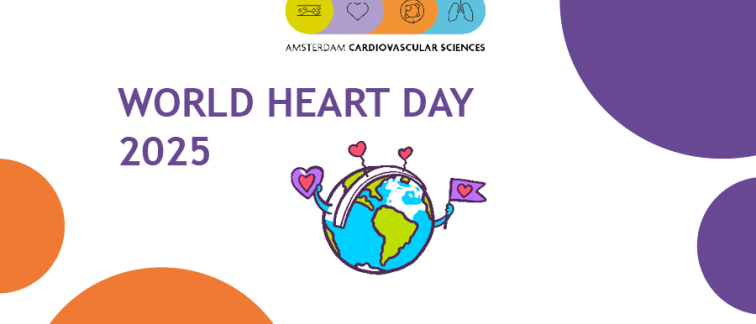This article is part of aspecial series by Amsterdam Cardiovascular Sciences (ACS) in celebration of World Heart Day. In this series, we highlight innovative research projects and collaborations that contribute to the prevention and treatment of cardiovascular diseases.
The ANNABEL study: honoring the memory of a young patient
Endocarditis remains one of the most dangerous heart conditions. Even after successful
surgery, some patients don’t recover as expected. The ANNABEL study at Amsterdam UMC aims to uncover why this happens, with the goal of improving survival and recovery after heart valve surgery.
When surgery isn’t enough: understanding postoperative failure after endocarditis
Endocarditis is a severe infection of the heart valves. While many patients can be saved through complex open-heart surgery, some continue to deteriorate despite technically successful interventions. Their blood pressure remains dangerously low, clotting is impaired, and their recovery stalls. It is as if the body continues to respond to a deadly infection that is no longer there.
The ANNABEL study is named in honour of a young patient who tragically passed away from complications after surgery for endocarditis. Following her death, her family made a generous donation to the Department of Cardiothoracic Surgery at the Amsterdam UMC to support research that could help future patients. This donation was committed by prof. Robert Klautz and dr. Nimrat Grewal to launch the ANNABEL project, a joint initiative between cardiothoracic surgery, the Department of Cardioanesthesiology (drs. Anne Beukers, dr. Henning Hermanns), and the Laboratory of Experimental Intensive Care & Anesthesiology (LEICA) (dr. Charissa van den Brom).
A multidisciplinary approach to post-surgical failure
The project investigates why certain patients, especially those with valve infections, develop severe circulatory problems after surgery, despite the infection being eradicated. Researchers are particularly interested in how the interplay between clotting, immune cells, and the microcirculation contributes to this critical imbalance. One hypothesis is that the heart-lung machine, essential for open-heart surgery, may inadvertently damage blood cells and disrupt the body's smallest vessels, compounding the post-operative inflammatory response.
To explore this, the ANNABEL team collects blood samples from patients undergoing surgery and recreates key aspects of the surgical process in a controlled lab setting. By mimicking these conditions and analysing the biological responses, the researchers aim to identify potential targets for therapy, such as medications to stabilise circulation or prevent abnormal clotting, and ultimately improve outcomes after valve surgery.

